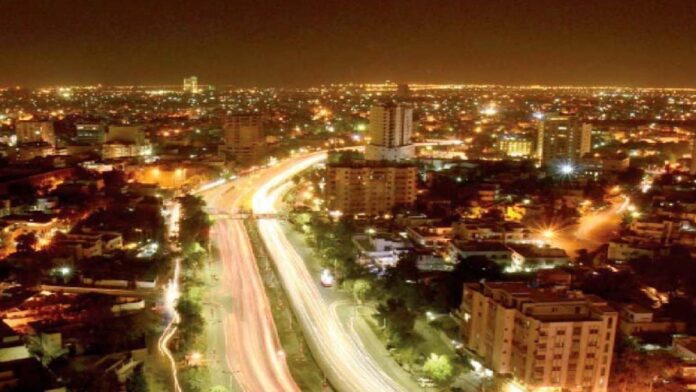ISLAMABAD: The government has launched seven more projects worth about Rs8 billion for the provision of broadband services to over 2.5 million people in the un-served and under-served areas of the country’s four provinces.
Out of the total allocation, the government will spend Rs3.5 billion on IT projects in Balochistan alone.
The projects were approved at the 81st meeting of the board of directors of Universal Service Fund (USF) on Monday. The meeting was chaired by IT and Telecom Secretary and USF Board Chairman Dr Muhammad Sohail Rajput.
The number of projects designed for providing optical fibre cable and broadband services since 2018 has reached a record 56 and the total cost (subsidy) has exceeded Rs52 billion.
Read also: Oil price cut to eat up Rs28 billion
Federal Minister for Information Technology and Telecommunication Syed Aminul Haque, while congratulating the USF board on the launch of new projects, said that whatever the political situation, the IT ministry and its subsidiaries, especially the USF, would continue to perform.
He emphasised that the IT ministry, through the USF, was committed to connecting the people in remote areas with the digital world.
It was being ensured that the projects started during the tenure of current government were completed in the stipulated time frame, the minister said, adding that in all projects, only the lowest bidding telecom operators were selected.
Earlier speaking at the meeting, IT Secretary Dr Muhammad Sohail Rajput said that the provision of broadband services to the residents of un-served and under-served areas was needed as much as for the big cities.
He pointed out that while the implementation of projects had been ensured under the rules and regulations in all provinces, the projects worth Rs3.57 billion was approved in principle where special importance was given to the deprived province of Balochistan.
Although the wide area of Balochistan and the provision of broadband services to the population there was costlier than any other area, the board always included the province in its priorities, the secretary remarked.
Among the projects approved by the USF board is the provision of 4G services in Qila Saifullah and Zhob in Balochistan, which was awarded to Pak Telecom Mobile Limited (Ufone) with a total subsidy of Rs3.57 billion. The project is targeted to be completed in 18 months.
The project will facilitate a population of more than 100,000 in 111 villages spread over an area of 8,408 square kilometres.
A project for providing broadband services in Jhang, Bhakkar and Toba Tek Singh districts of Punjab was given to Pakistan Mobile Company Limited (Jazz). It will get a subsidy of Rs2.25 billion with completion time frame of one year.
In a short span of time, facilities will be provided to a population of over 1 million in 722 villages over an area of 8,925 square kilometres.
The meeting also approved the project of uninterrupted voice and broadband services on the 95km section of Hakla-DI Khan Motorway connecting Dera Ismail Khan, Lakki Marwat, Mianwali, Attock and Rawalpindi districts. The project was given to Jazz with a subsidy of Rs375.33 million.
Similarly, a scheme for providing broadband services in six Mauzas on the outskirts of Islamabad was handed over to Jazz at a cost of Rs11 million.
A project for mobile services in a Mauza of Mandi Bahauddin was also awarded to Jazz at a cost of Rs22.6 million.
Under the optical fibre cable laying programme, a 555km-long fibre project in Larkana and Qambar Shahdad Kot districts of Sindh was given to PTCL with a total subsidy of Rs1.61 billion. It is targeted to be completed in one year.
By connecting 62 union councils of these districts, it will be possible to provide high-speed broadband connectivity to a population of more than 1.2 million.
Under the optical fibre cable programme, PTCL got another project for laying a 106km-long cable for a population of more than 136,000 in six union councils of Haripur and Islamabad.
For the project, out of the total cost of Rs410 million, a subsidy of Rs235 million was approved.

